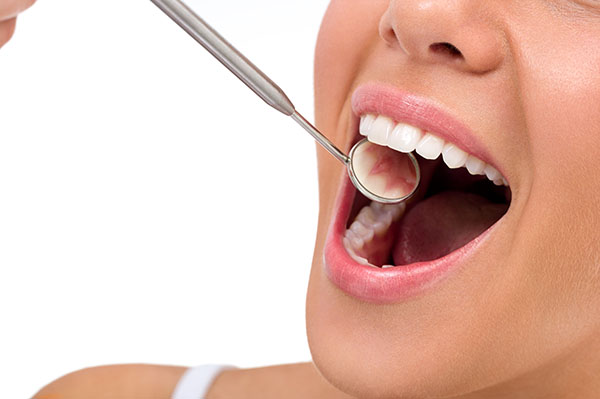 A restorative dentist can treat your dental decay. Cavities show that your tooth is being attacked by bacterial acids. This type of dental problem can lead to more severe dental damage if you do not get early treatment for it. Here are the ways your restorative dentist can help with your tooth decay.
A restorative dentist can treat your dental decay. Cavities show that your tooth is being attacked by bacterial acids. This type of dental problem can lead to more severe dental damage if you do not get early treatment for it. Here are the ways your restorative dentist can help with your tooth decay.
Onlays and inlays
Tooth decay tends to weaken teeth. A restorative dentist can treat the tooth with onlays or inlays. Dental impressions will allow the lab to create these custom restorations. Onlays cover the chewing surfaces of teeth, while inlays cover at least one dental surface. The dentist will cement the onlay or inlay in its proper position. These durable, tooth-colored restorations will blend well with the patient’s natural dental structure.
Dental fillings
A restorative dentist will use dental fillings on teeth with minor decay. Patients do not usually need local anesthetics for this treatment. The dentist will drill away the decayed areas. Cleaning, disinfecting, and drying them will follow. The filling will be tooth-colored, so it will blend well with the natural dental structure. Polishing it will remove rough areas.
Traditional dental bridges
These restorations are also called fixed bridges. The restorative dentist will recommend dental bridges to patients who have one or many missing teeth. Traditional bridges can improve one’s smile, speech, and eating capability. They prevent the remaining natural teeth from shifting into the dental spaces. The support these bridges provide prevents the teeth from loosening or even falling out.
Traditional dental bridges use the teeth on one or both sides of the dental space for support. The support teeth are called abutment teeth. The restorative dentist will take an impression of the dental gap and abutment teeth. The lab will use this mold to create the artificial teeth and dental crowns for the abutment teeth. Once ready, the dentist will cement the crowns to the supporting teeth.
Dental crowns
These restorations can cover an entire visible part of a tooth. A restorative dentist can recommend dental crowns for teeth with severe decay. The patient can choose gold or porcelain crowns. Research shows that most patients choose tooth-colored porcelain because it has the look and texture of natural teeth. That is why dentists use porcelain crowns on teeth near the front. A restorative dentist often uses gold crowns on back teeth because of their attractive color.
Root canal procedure
Dental decay may reach the pulp, which contains sensitive blood vessels and nerves. Pain is a common symptom of infected pulp. The restorative dentist will perform a root canal treatment to relieve the pain. Numbing the area will come first. The dentist will then remove the infected pulp.
Cleaning, disinfecting, and drying the pulp cavity will follow. The dentist will fill this area with gutta-percha to stabilize and seal the tooth. Placing a custom dental crown over the treated tooth will follow. The cap will strengthen and protect the treated tooth. It will also improve the tooth’s appearance.
Dental extractions
The restorative dentist will assess the decayed tooth. A repairable tooth can receive treatment. A tooth with severe damage from tooth decay may not be repairable anymore. For this, the dentist will recommend a dental extraction.
This invasive procedure is always the last resort in dentistry. Even so, it is necessary to help improve one’s dental health. A restorative dentist may suggest removing wisdom teeth. This procedure can stop the pain. It can also prevent overcrowding.
Your restorative dentist can help you recover from dental decay
Tooth decay can worsen if you do not get early treatment for it. The damage that bacterial acids cause can result in more expensive and complicated procedures later. The right treatment can help rebuild your dental health and appearance. Working with your restorative dentist can help you overcome tooth decay.
Request an appointment or call Gorfinkel Dentistry at 954-231-5007 for an appointment in our Plantation office.
Related Posts
A restorative dentist primarily aims to protect oral health through tooth restorations. These restorations can also prevent pain, address any discomfort, decrease the risk of future issues, and revitalize the appearance of a smile. Here is a look at common problem-causing conditions and treatments they use to address them.Decay can wreak havoc, causing tooth pain,…
Curious about what a restorative dentist does? Read on to learn more. The unexpected nature of dental injuries can turn ordinary moments into emergencies. These injuries impact oral health and comfort, whether it is from sports mishaps, accidental falls, or an auto accident. A restorative dentist has the skills and tools to repair and restore…
Wondering what a restorative dentist can do about worn-down teeth? Read on to learn more. It is normal for teeth to wear down. However, it becomes problematic if the rate of wear is disproportional to the patient's age. This common dental issue weakens the teeth and also makes the tooth less appealing. A few oral…
